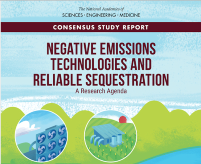Technology
Overview of the Aljadix process
Carbon negative biofuel means that the renewable diesel is consumed but the carbon in the solid hydrochar remains inert and chemically sequestered. Permanently.
Why microalgae? Microalgae is the (ancient) source for all geological deposits of crude oil and natural gas. Microalgae are microscopic phytoplankton including cyanobacteria, green algae and diatoms. Their rapid growth rate, high oil content, and low lignin/cellulose content make them the ideal biomass feedstock for renewable diesel production.
Carbon dioxide is obtained from the atmosphere and is directly injected into the fully sealed cultivation platform. Initially, carbon dioxide is sourced from the flue gas of fossil fuel power stations or cement plants. As the scale of operations increases, carbon dioxide will be additionally sourced by direct air capture.
Nutrient supply is recognized as a major limitation on scalability of biofuels. The Aljadix design solution addresses this problem by recycling nutrients such as nitrogen, phosphorus, iron, sulfur and potassium from downstream processing. The sea-water based growth media is also immediately re-used as it remains rich in nutrients after the microalgae is harvested. There is no liquid or nutrient exchange between the fully-sealed cultivation platform and the ambient ocean water.
Microalgae is harvested by high-efficiency microfiltration. The harvest is treated by hydrothermal liquefaction (HTL; 250-350 C, 150-200 atm, less than 10 minutes) to generate the hydrochar and biocrude. The biocrude is upgraded by hydrotreating to market-ready renewable diesel.
Energy Return on (Energy) Investment (ERoI): The energy cost of each step of the continuous process has been optimized to ensure the maximum useful energy captured from sunlight is transferred to the renewable diesel product.
Aljadix is designed to have ERoI at least 2:1.
Carbon Life-Cycle Assessment: The amount of carbon contained in Aljadix hydrochar is designed to be greater than the total amount of fossil carbon released during the process of generating the biofuel, including growth, harvest and HTL. Carbon negative involves more than just displacing the use of fossil fuel with a low-carbon biofuel. It requires the additional step of permanently removing a quantity of carbon dioxide from the atmosphere.
Aljadix is designed to have net carbon negativity of -3.0% per unit of renewable diesel.






